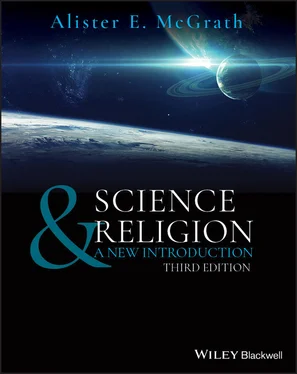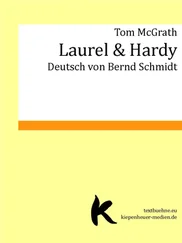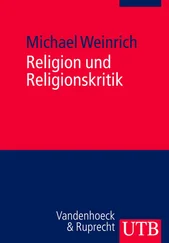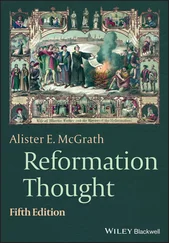2 Both science and religion are concerned about making sense of things. Although many religions, including Christianity, aim for the transformation of the human situation, most also link this with offering an explanation of the world and human beings. Why are things the way they are? What explanations may be offered for what we observe? What is the ‘bigger picture’ which helps us to make sense of our observations and experience? Scientific and religious explanations generally take different forms, even when reflecting on the same observations. Although there is an obvious risk in this simplification, it is helpful to think of science asking ‘how’ questions, where religion asks ‘why’ questions. Science seeks to clarify mechanisms; religions seek to explore questions of meaning.These approaches do not need to be seen as being in competition, or as being mutually incompatible. They operate at different levels. While some scientists hold that we can go no further than understanding how things happen, others argue that we need to answer what the philosopher of science Karl Popper termed ‘ultimate questions’ – such as the meaning of life. One of the most influential discussions of this point is found in the social psychologist Roy Baumeister's classic work Meanings of Life (1993). For Baumeister, the human quest for meaning focuses on a series of basic human needs – such purpose, efficacy, and self‐worth. Why am I here? Can I make a difference? Do I really matter? Science may inform the answers given to these questions, but it does not determine them.
3 In recent years there has been a significant increase in awareness within the scientific community of the broader issues raised by its research, and the limits placed upon that community's ability to answer them. An obvious example concerns ethical questions. Is science able to determine what is right and what is wrong? Most scientists would affirm that their discipline is fundamentally amoral – that is, that the scientific method does not extend to moral questions.
This does not mean that scientists lack interest in moral questions; the point is that most scientists recognize that their disciplines cannot create or sustain moral values – a point to which we shall return later in this volume ( 179–85). For example, consider the point made by Stephen Jay Gould in his important essay ‘Nonmoral Nature’:
Our failure to discern a universal good does not record any lack of insight or ingenuity, but merely demonstrates that nature contains no moral messages framed in human terms. Morality is a subject for philosophers, theologians, students of the humanities, indeed for all thinking people. The answers will not be read passively from nature; they do not, and cannot, arise from the data of science. The factual state of the world does not teach us how we, with our powers for good and evil, should alter or preserve it in the most ethical manner.
This has led to growing interest in dialogical approaches to such issues. Natural scientists seem increasingly willing to complement scientific understandings of the world with additional approaches that permit or encourage the ethical, aesthetical, and spiritual enhancement of their approaches. Religion is being seen increasingly as an important dialogue partner in allowing the natural sciences to engage with questions which are raised, yet not answered, by scientific research. Debates about the ethics of biotechnology, for example, often raise important questions which science cannot answer – such as when a human ‘person’ comes into existence, or what constitutes an acceptable quality of life.
The Chessboard: The Diversity of Science and Religion
Many rightly express a concern about the coherence of the field of science and religion. Is it conceptually integrated – or is it just a sprawling mass of disconnected debates and discussions, gathered together for the sake of convenience under the loose framework of ‘science and religion’? This is a fair point to raise, given the diversity of individual sciences and religions, and the multiplicity of their possible interactions.
The term ‘science’ is often used to designate the overall empirical and theoretical enterprise that lies behind or is enfolded within the various scientific disciplines – such as chemistry, biology, and psychology. Yet these are individual sciences , which have their own distinct research methods, histories, and professional communities of interpretation and application. The uncritical use of the more general term ‘science’ flattens the landscape of the natural sciences, failing to do justice to the distinctiveness of each individual science.
‘Religion’ is not a well‐defined category and is thus resistant to rigorous definition. Scholars working in the field of the psychology of religion and other empirical approaches to religious thought and behaviour constantly find themselves frustrated by the lack of an agreed empirical definition of religion. To name one obvious problem: if religion is defined in terms of belief in a god or god(s), this excludes one of the world's major religions – Buddhism. Religion is not an empirical concept, but a socially constructed notion. We might agree that there are individual ‘religions’ – such as Islam, Judaism, and Buddhism – but this does not mean that there exists some universal essential category of ‘religion’ which each exemplifies in its own distinct way.
There is now a general consensus that it is seriously misleading to regard the various religious traditions of the world as variations on a single theme. During the early 1960s, for example, the Canadian Islamic scholar Wilfred Cantwell Smith argued that religions do not possess some common defining feature that is captured and expressed by the term or underlying category of ‘religion’. Rather, Smith argued, the concept of ‘religion’ was created by modern Western scholars and superimposed upon a variety of phenomena, thus creating the misleading impression of some underlying universal concept of ‘religion’.
It is also important to appreciate that, in addition to clear differences across the world's religions, there are also significant variations within individual religious traditions, such as Christianity. Conservative Protestants and liberal Catholics are likely to hold very different views on Charles Darwin's theory of natural selection. So can one of these alone be identified as ‘the Christian view’, which is somehow to be seen as normative within a religion? Or must we learn to acknowledge a diversity of views within a single religious tradition? Perhaps the wisest approach is simply to respect the integrity of religious traditions and movements within such traditions, rather than to attempt to homogenize their ideas or force them into some artificial common mould. The complexity of modern Buddhism, Christianity, Islam, and Judaism is such that it is intellectually precarious to generalize about them without acknowledging debate and diversity within them.
Yet perhaps the most obvious difficulty with the field of science and religion is that it designates such a broad field that it runs the risk of becoming meaningless and useless. Which science? Which religion? If the field of ‘science and religion’ claims to represent all sciences and all religions, it becomes unmanageable and incoherent, given the diversity and complexity of both specific scientific disciplines and specific religious traditions.
In discussing this point with students at Oxford, I have found the analogy of a chessboard to be helpful. A chessboard has multiple spaces (in this case, 64) – but they are not all occupied. The field of science and religion, at least in theory, offers a vast array of intellectual possibilities – such as the relation of Buddhism and Psychology, or Islam and Biology. Yet not all of these possibilities have attracted intellectual attention. Some spaces are packed full of researchers, scholars, and interested readers; others are virtually empty. Examples of highly populated areas of interest within this field include:
Читать дальше












